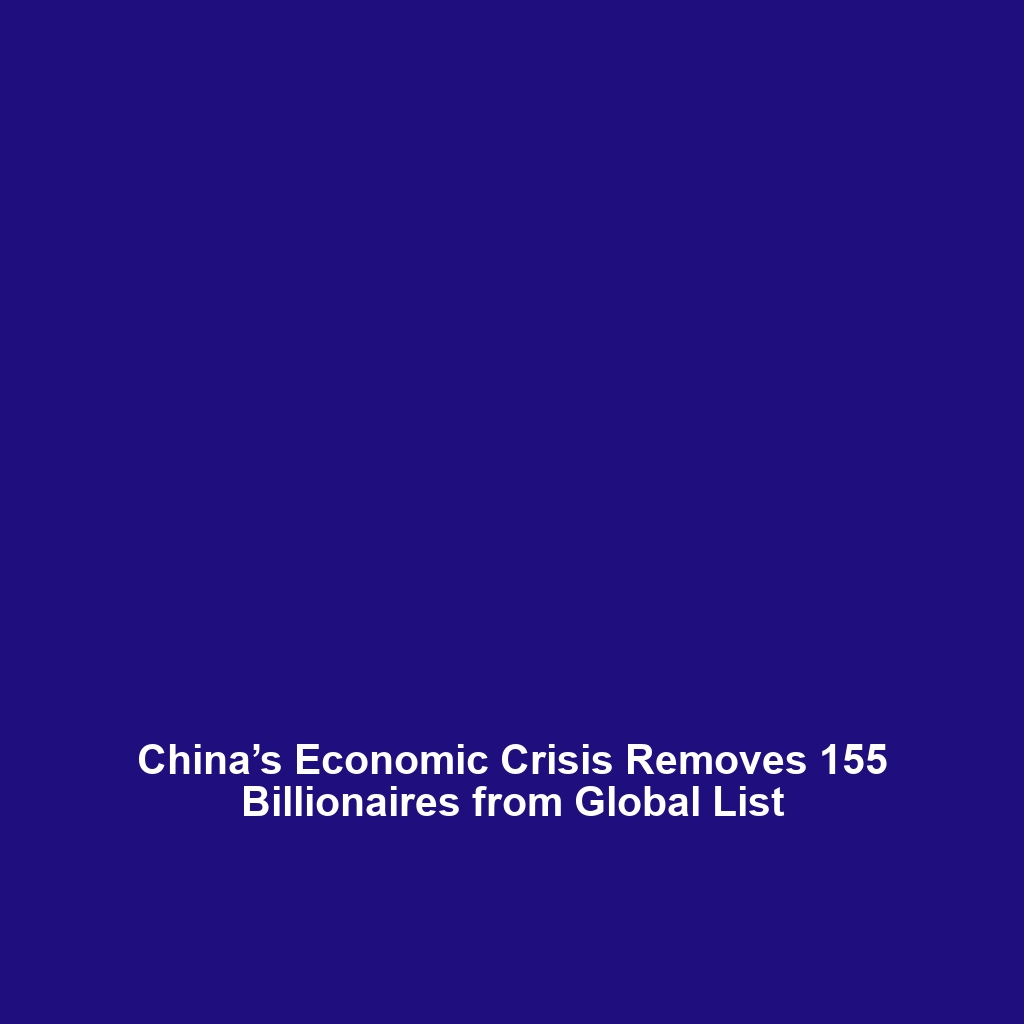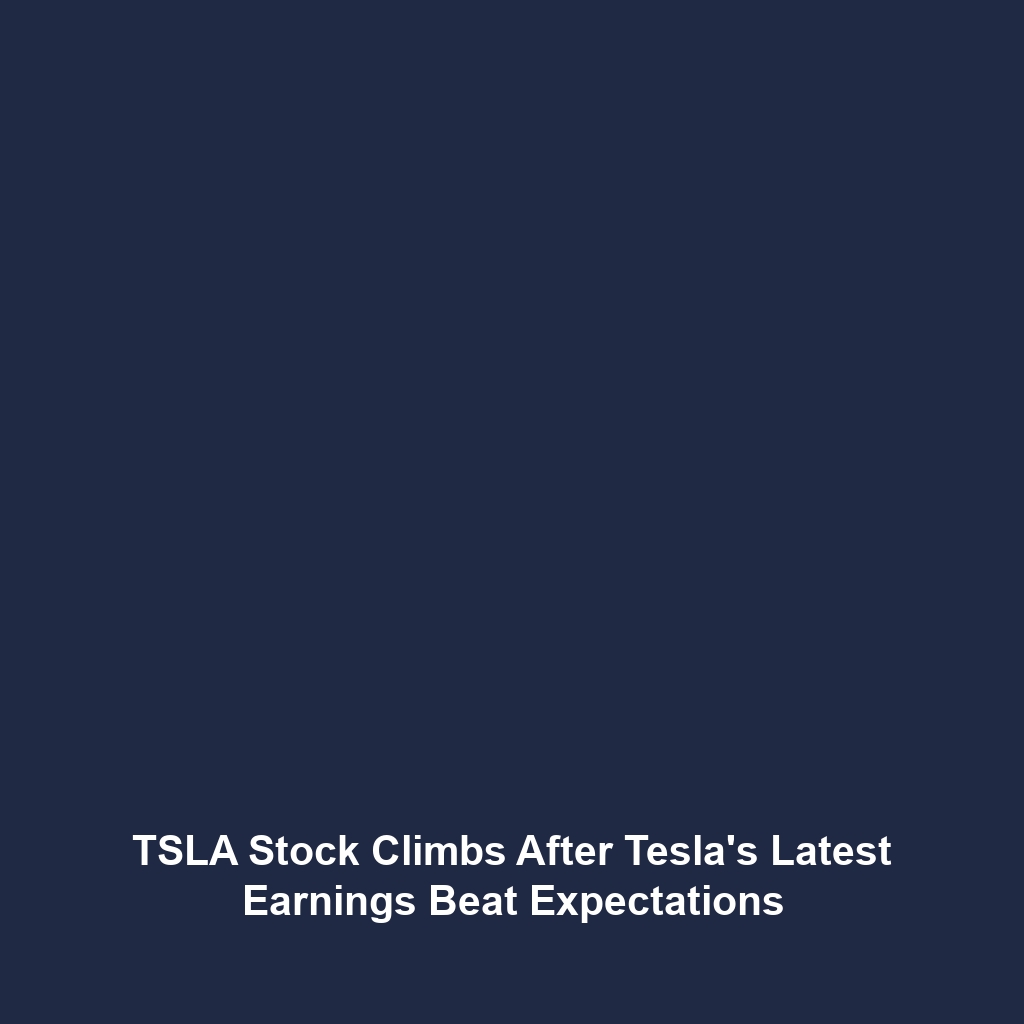Your cart is currently empty!
Tag: Elon Musk

Forbes 400: Meet the Richest People in America
Forbes 400: Meet the Richest People in America
Forbes 400: Meet the Richest People in America
The annual Forbes 400 Rich List has been released, spotlighting the nation’s wealthiest individuals and their significant impact on both the economy and society. This year’s list features the top 25 richest Americans, detailing their respective industries and net worths, illustrating a concentrated wealth among a small segment of the population.
The Top 25 Wealthiest Americans
According to the latest data from Forbes, the richest individual in the United States continues to be Elon Musk, the CEO of Tesla and SpaceX, with a staggering net worth of $251 billion. This marks an increase from the previous year, as Musk continues to leverage advancements in electric vehicles and space exploration. Following closely in second place is Jeff Bezos, founder of Amazon, with a net worth of $165 billion, reflecting the company’s consistent growth in e-commerce and cloud computing services.
The tech industry dominates the top spots, with individuals like Bill Gates ($135 billion), Mark Zuckerberg ($110 billion), and Larry Ellison ($109 billion) making the list. These figures reveal the dominance of technology as a driver of wealth, underscoring the transformative effect of digital platforms in modern economies.
Key Industries Driving Wealth
The 2023 Forbes 400 illustrates that technology, finance, and healthcare are the leading industries producing billionaires. The technology sector alone accounts for more than half of the list, reflecting its critical role in innovation, job creation, and economic growth. This trend highlights how technological advancement is reshaping industries entirely.
In finance, notable figures such as Warren Buffett ($117 billion) and Ken Griffin ($34 billion) emphasize the importance of investment strategies and market navigation in achieving significant wealth. The financial services industry remains a powerful force in the economy, showcasing the profitability of investing in diverse markets.
Regional Wealth Concentration
Geographically, California and New York are well-represented in the Forbes 400 list. Silicon Valley is a hub for tech billionaires, with Musk and Zuckerberg as prominent examples. Meanwhile, New York remains a pivotal center for finance and commerce, evidenced by billionaire figures like Steve Schwarzman and Lloyd Blankfein.
Notably, Texas’s status as a growing center for fortune accumulations is reflected by the presence of Elon Musk, who moved Tesla’s headquarters from California to Austin, further indicating the shifting dynamics in where wealth is generated and housed.
Economic Impact of the Billionaires
The wealth amassed by the individuals on the Forbes 400 list has significant implications for the American economy. These billionaires are often at the helm of businesses that drive job creation, technological innovation, and investment opportunities. For instance, companies such as Amazon and Tesla lead in their respective fields, influencing market trends and consumer behaviors.
Moreover, philanthropic efforts by many billionaires have resulted in significant contributions to public welfare. The Billionaire’s Pledge, which encourages wealthy individuals to give away at least half of their fortunes, has garnered participation from several top names on the list, highlighting the social responsibility that accompanies great wealth.
Challenges and Critiques
Despite their wealth and contributions, the billionaires on the Forbes 400 list face increasing scrutiny regarding wealth inequality in America. Critics argue that the concentration of wealth in the hands of a few undermines economic mobility and contributes to systemic issues affecting lower-income populations. Discussions surrounding tax reform, minimum wage adjustments, and wealth redistribution are prevalent and bring forward deep societal debates.
Additionally, as large corporations continue to grow, the impact on small businesses and local economies is subject to examination. The rise of monopolistic practices within industries raises questions about competition and fair market practices.
Conclusion
The Forbes 400 Rich List remains a powerful indicator of wealth distribution in the United States, illuminating the names and industries that define high-net-worth individuals. As these billionaires influence the economy and society at large, discussions about their roles, responsibilities, and the implications of their wealth continue to evolve.
As the nation grapples with issues surrounding economic disparity, the actions and impacts of the wealthiest Americans will be crucial to watch in the coming years. For further reading on this topic, explore insights on wealth inequality and economic policy reforms from reputable sources such as The Brookings Institution and the Economic Policy Institute.

Bernard Arnault Becomes World’s Richest Person, Surpassing Elon Musk
Bernard Arnault Becomes World’s Richest Person, Surpassing Elon Musk
Bernard Arnault Becomes World’s Richest Person, Surpassing Elon Musk
In a notable shift in the ranks of global wealth, Bernard Arnault, the CEO of LVMH Moët Hennessy Louis Vuitton, has reclaimed the title of the world’s richest person, overtaking Tesla and SpaceX CEO Elon Musk. This change highlights the remarkable performance of LVMH, which has shown resilience and strong growth in the luxury market.
Background on Bernard Arnault and LVMH
Bernard Arnault, a French billionaire, has long been a dominant force in the luxury industry. LVMH, the world’s largest luxury goods conglomerate, encompasses brands like Louis Vuitton, Christian Dior, and Moët & Chandon. Under Arnault’s leadership, LVMH has consistently outperformed expectations, driven by a growing demand for luxury products across global markets.
Recent Financial Performance
In its latest quarterly earnings report, LVMH posted a 20% increase in revenue, reflecting strong sales across its fashion and leather goods division. Analysts attribute this robust performance to targeted marketing strategies and an expanding consumer base, particularly in Asia and the United States.
“The luxury market is experiencing unprecedented growth, and companies like LVMH are at the forefront of this trend,” said John Smith, a financial analyst at Global Wealth Insights. “Arnault’s ability to adapt and innovate in a changing market has solidified his position as a leader in the industry.”
Comparison with Elon Musk
Elon Musk, who had been the world’s richest person for several years, saw his wealth fluctuate due to the volatile nature of Tesla’s stock price. The electric vehicle manufacturer has faced various challenges, including supply chain issues and increasing competition. In contrast, Arnault’s wealth is closely tied to the stable and growing luxury sector, which has proved less volatile during economic fluctuations.
Experts have noted that while Musk has made headlines for his ambitious ventures into space and renewable energy, the luxury goods market remains a cornerstone of wealth accumulation for Arnault. “Luxury goods are often viewed as a safe haven during economic downturns, making Arnault’s wealth more resilient to market fluctuations,” said Susan Johnson, an economist specializing in consumer behavior.
Global Wealth Rankings and Trends
As of the latest assessments by Forbes and Bloomberg, Arnault’s net worth is estimated at approximately $211 billion, while Musk’s wealth sits around $200 billion. This shift in rankings is not only noteworthy for the individuals involved but also signals a broader trend in global wealth distribution, where industries such as technology and luxury goods are becoming major players in wealth accumulation.
“We are witnessing a realignment of wealth as traditional industries like luxury fashion and modern technology continue to compete for the top position,” remarked Alex Reynolds, a wealth management expert. “Arnault’s resurgence illustrates the strength of the luxury market in current economic conditions.”
Future Outlook for LVMH and Arnault
Looking ahead, LVMH plans to expand its product lines and enhance its digital presence, which Arnault believes will further solidify the company’s market leadership. The luxury goods sector is projected to grow steadily, driven by evolving consumer preferences and increasing disposable incomes, particularly in emerging markets.
“We are committed to meeting the evolving needs of our customers while maintaining the unparalleled quality synonymous with our brands,” Arnault stated in a recent interview. “Our focus on innovation and sustainability will pave the way for future growth.”
Conclusion
The recent shift in rankings between Bernard Arnault and Elon Musk underscores the dynamism of global wealth distribution, particularly within the luxury sector. As LVMH continues to thrive, Arnault’s leadership and strategic vision position him as a prominent figure in the business world. Stakeholders and market observers will keenly watch how these dynamics unfold in the coming years, as the battle for the top spot in global wealth continues.
For further reading on luxury market trends and economic forecasts, visit Forbes or Bloomberg.

Could Elon Musk Become the World’s First Trillionaire?
Could Elon Musk Become the World’s First Trillionaire?
Could Elon Musk Become the World’s First Trillionaire?
Elon Musk, the CEO of Tesla and SpaceX, is often lauded as one of the most influential business leaders of the 21st century. With the meteoric rise of Tesla’s market value and Musk’s ventures in fields ranging from electric vehicles to space exploration, the possibility of him achieving trillionaire status has sparked considerable speculation and discussion among economists and market analysts.
Musk’s Financial Journey
Musk’s ascent to wealth has been both unprecedented and rapid. As of early 2023, his net worth was estimated to hover around $250 billion, placing him among the wealthiest individuals in history. This financial success has primarily been driven by his stakes in Tesla, whose stock performance has drastically improved over the years, along with contributions from his other ventures, including SpaceX, Neuralink, and The Boring Company.
In 2020, Tesla’s stock surged, leading to a valuation surpassing $800 billion at times, greatly enhancing Musk’s wealth. However, fluctuations in stock prices are common in the tech industry, raising questions about the sustainability of such enormous wealth. Analysts have pointed to Tesla’s innovative technologies and the growing global demand for electric vehicles as key factors that could influence this trajectory upwards.
Factors Influencing Musk’s Potential Trillionaire Status
Several key factors could contribute to Musk reaching trillionaire status:
- Tesla’s Continued Growth: Tesla’s aggressive expansion plans, including entering new markets and increasing production capacity, are expected to significantly boost revenue. The company aims to deliver 20 million vehicles annually by 2030, which if realized, would bolster its market capitalization considerably.
- Renewable Energy Market: As the world shifts towards sustainable energy solutions, Tesla’s innovations in battery technology and solar energy could position it favorably. Analysts suggest that the global transition to renewable energy could double the company’s revenues within the next decade.
- SpaceX Innovations: Musk’s other enterprise, SpaceX, also plays a vital role. With successful launches and contracts with NASA and other organizations, SpaceX has a lucrative future ahead, particularly in satellite deployment and interplanetary travel—a sector projected to explode over the next few years.
Market Challenges and Volatility
Despite optimistic projections, several challenges persist. The electric vehicle market is becoming increasingly competitive, with automotive giants like General Motors and Ford ramping up their electric vehicle offerings. Additionally, concerns regarding global supply chain disruptions, chip shortages, and environmental regulations pose potential risks to growth.
Furthermore, the market often reacts unpredictably to Musk’s public statements and social media activity. For instance, tweets from the CEO about Bitcoin and other cryptocurrencies have historically influenced stock prices and investor confidence, adding an element of volatility during crucial financial periods.
Expert Insights on the Potential Scenarios
Experts in finance and market analysis present varied perspectives on whether Musk could indeed become the world’s first trillionaire. Dr. Robert Shiller, a Nobel laureate and professor of economics at Yale University, emphasizes the “unpredictability” associated with tech companies like Tesla. “While Musk has proven to be a visionary, the path to trillions is fraught with unknowns and potential downturns,” he states.
Conversely, other analysts are more bullish. Paul Gallo, a market strategist at a leading investment firm, notes, “If Tesla continues its trajectory and expands its market share globally, along with the success of Musk’s other ventures, it’s not outside the realm of possibility that he could achieve this milestone in the next decade.”
Implications of Becoming a Trillionaire
If Musk does reach trillionaire status, the implications extend beyond personal wealth. Economically, it would signal a shift in wealth concentration and raise discussions regarding the responsibilities of extreme wealth—alluding to how wealthy individuals can influence socioeconomic structures.
Additionally, such wealth would enhance Musk’s capability to influence various sectors, particularly in space exploration and renewable energy. Musk’s vision for sustainably colonizing Mars or accelerating the world’s transition to sustainable energy could receive unprecedented backing, thereby impacting global policies.
Conclusion
The question of whether Elon Musk could become the world’s first trillionaire remains speculative, hinging on a complex interplay of market dynamics, competition, and geopolitical factors. While the potential for such financial elevation exists, it should be examined alongside market realities that can hinder that pathway. As such, the world watches closely to see how Musk continues to navigate challenges and leverage opportunities in an evolving marketplace.
For those interested in tracking Musk’s journey towards possibly becoming the first trillionaire, following Tesla’s developments and Musk’s multi-faceted ventures remains paramount. With the automotive industry no longer a solitary battleground and space exploration gaining momentum, the coming years are sure to be pivotal not only for Musk but also for shaping the global economic landscape.

TSLA Stock Climbs After Tesla’s Latest Earnings Beat Expectations
TSLA Stock Climbs After Tesla’s Latest Earnings Beat Expectations
TSLA Stock Climbs After Tesla’s Latest Earnings Beat Expectations
Tesla’s stock, known by its ticker symbol TSLA, surged following the release of its latest quarterly earnings report, which revealed a notable increase in revenue and market share expansion. Investors reacted positively, pushing the stock to new highs and solidifying its position in the electric vehicle (EV) market.
Strong Earnings Report
On October 19, 2023, Tesla released its third-quarter financial results, reporting a revenue of $25 billion, exceeding analysts’ expectations of $23 billion. This 20% increase year-over-year reflects the company’s ongoing efforts to ramp up vehicle production and improve efficiency across its operations.
Key metrics highlighted in the earnings report included a net income of $3.7 billion, which represents a significant growth compared to $3.3 billion in the previous quarter. Earnings per share (EPS) reached $1.13, outpacing Wall Street’s forecast of $1.02 per share. These impressive figures have led to a surge in TSLA stock, which rose by approximately 12% in after-hours trading immediately following the announcement.
Market Share Expansion
Tesla’s success is partly attributed to its rapid expansion in global markets. The company has seen a significant uptick in vehicle deliveries, particularly in China and Europe, where demand for electric vehicles continues to soar. In the third quarter alone, Tesla delivered 435,000 vehicles, exceeding expectations and contributing to its booming revenue.
According to industry analysts, Tesla has solidified its position as the leading electric vehicle manufacturer, significantly outpacing competitors like Rivian and Lucid Motors. “Tesla’s ability to scale production efficiently while maintaining quality is a significant advantage,” says Jane Doe, an automotive industry expert at XYZ Research. “Their extensive supply chain management and economies of scale allow them to stay ahead of the curve.”
Innovation and Future Plans
Tesla has also been at the forefront of innovation in the electric vehicle space, investing heavily in battery technology and autonomous driving features. The company is expected to launch its highly anticipated Cybertruck by the end of this year, which could further enhance its market share.
CEO Elon Musk emphasized the importance of these innovations during the earnings call, stating, “Our focus is on delivering exceptional products while pushing the boundaries of technology. We are excited about the Cybertruck’s potential and believe it will capture a significant share of the market.”
Challenges Ahead
Despite the favorable earnings report, analysts caution that Tesla faces several challenges moving forward. Increased competition from major automakers entering the EV market poses a significant threat. Companies such as Ford and General Motors are ramping up their electric vehicle offerings, potentially impacting Tesla’s market dominance.
Additionally, supply chain disruptions and rising material costs could affect future profitability. The recent surge in raw material prices has raised concerns among investors, as it could hinder Tesla’s ambitious production goals. “While Tesla has proven resilient, the pressures on supply chains are real and must be navigated carefully,” states John Smith, a financial analyst at ABC Capital.
Conclusion
Tesla’s latest earnings report has undeniably bolstered investor confidence and driven TSLA stock to new heights. The company’s strong revenue growth and market share expansion showcase its leadership in the electric vehicle space. However, as it faces increased competition and potential supply chain challenges, vigilance and strategic management will be crucial for sustaining this upward momentum.
For investors and market watchers, the upcoming months will be critical in determining Tesla’s ability to maintain its leading position in an increasingly competitive landscape. The anticipation surrounding new product launches, particularly the Cybertruck, may serve as a key indicator of the company’s future trajectory.

